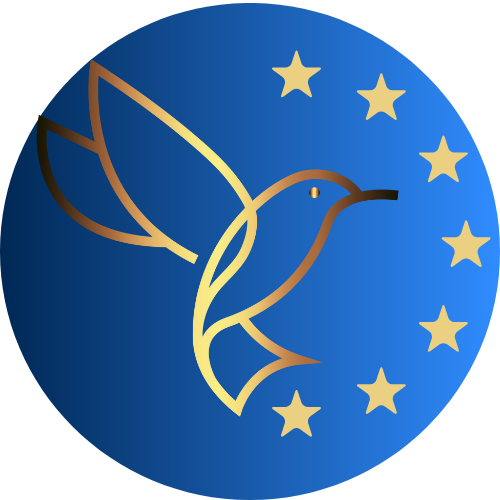Applying for EU grants can feel like navigating a labyrinth—complicated, overwhelming, and full of uncertainty. But guess what? You’re not alone! According to the European Commission, millions of euros go unclaimed each year simply because applicants hesitate or misunderstand the process.
Fear of rejection, imposter syndrome, and misconceptions about eligibility hold many back. But with the right mindset and strategies, you can break through these psychological barriers and secure the funding your project deserves. Let’s demystify the EU grant application process and turn anxiety into confidence!
Why EU Grant Applications Feel Overwhelming
Applying for EU grants often feels daunting, and many aspiring applicants struggle to navigate the complexities of the process. From understanding eligibility criteria to overcoming the fear of rejection, several factors contribute to this sense of overwhelm.
Complexity Concerns in EU Funding Processes
The structure of EU funding programs can be intricate, with varying eligibility requirements, application deadlines, and extensive documentation. Many applicants find it challenging to decipher the guidelines and assemble all necessary materials within strict timeframes.
Common Obstacles in Applying for EU Grants
- Bureaucracy and lengthy procedures: The detailed nature of EU grant applications can deter first-time applicants.
- Lack of awareness: Many eligible organizations and individuals are unaware of available funding opportunities.
- Time and resource constraints: Crafting a competitive application requires significant effort and expertise.
Misconceptions About EU Grant Eligibility
A common myth is that only large corporations or research institutions can receive EU grants. In reality, funding is available for startups, SMEs, non-profits, and individuals. Understanding who qualifies and what criteria matter can help applicants move forward with confidence.
The Fear of Rejection
Rejection is a natural part of the grant application process, but many potential applicants allow past failures or negative assumptions to discourage them. Addressing this fear requires a shift in perspective—viewing rejection as a learning opportunity rather than a final setback.
By breaking down these barriers, applicants can approach the EU grant application process with greater clarity and confidence, increasing their chances of success.
Psychological Barriers in EU Grant Applications
Applying for EU funding is not just a technical challenge—it’s a psychological one too. Many applicants experience self-doubt, fear, and imposter syndrome, which can prevent them from even starting the application process. Let’s explore these psychological barriers and how to overcome them.
Overcoming Fear of EU Funding Applications
- Fear of failure or rejection can make applicants hesitant to apply.
- Recognizing that rejections are common and part of the learning process.
- Breaking down the application into smaller, manageable steps to reduce anxiety.
- Seeking mentorship or guidance from successful grant recipients.
Imposter Syndrome in EU Funding Applicants
- Many applicants feel they are not “qualified enough” to receive funding.
- Understanding that EU grants are designed for diverse projects and applicants.
- Focusing on past achievements and how they align with funding criteria.
- Adopting a growth mindset—every application is an opportunity to learn.
Hesitations in Seeking EU Financial Support
- Self-doubt often prevents people from even considering EU grants.
- Addressing myths that EU grants are only for “elite” organizations.
- Recognizing that financial support is available for innovative and impactful ideas.
- Encouraging a proactive approach to research and application.
Navigating EU Funding Application Fears
- Identifying specific fears—whether it’s paperwork, eligibility, or rejection.
- Using structured timelines and checklists to stay organized and focused.
- Seeking expert assistance from EU project managers or funding consultants.
- Celebrating small wins along the way to maintain motivation.
By addressing these psychological barriers, applicants can build the confidence needed to navigate the EU funding process with clarity and determination.
Strategies to Overcome EU Grant Application Barriers
Navigating the EU funding application process requires not only knowledge but also the right mindset. Here are key strategies to help you overcome common barriers and improve your chances of success.
Building Confidence for EU Grant Submissions
- Develop a proactive approach to the application process.
- Set realistic goals and create a clear plan to stay on track.
- Practice self-assurance techniques like visualization and positive affirmations.
- Learn from successful past applicants to gain inspiration and insights.
- Recognize that expertise grows with experience—each application enhances your skills.
Demystifying the EU Grant Application Process
- Break the process into clear, manageable steps.
- Understand EU funding programs, eligibility criteria, and required documentation.
- Use checklists and project timelines to stay organized and avoid missed deadlines.
- Take advantage of EU webinars, guides, and informational resources.
How to Improve Your EU Grant Proposal Writing Skills
- Craft a compelling narrative that aligns with EU funding objectives.
- Focus on clarity, impact, and feasibility in your proposal.
- Highlight measurable outcomes and explain the long-term value of your project.
- Review successful EU grant applications as examples.
Seeking Expert Guidance and Support
Navigating the complexities of EU grant applications can be challenging, but you don’t have to do it alone. At EP Consulting Group, we specialize in grant writing and project management, helping applicants develop strong proposals that align with EU funding priorities. Our team of expert consultants works closely with clients to refine their applications, ensuring they meet the highest standards.
Through one-on-one consultations, we provide tailored advice to strengthen your proposal and increase your chances of securing funding.
Additionally, peer reviews are a valuable tool in the application process. Our team can facilitate feedback sessions to help identify weak areas in your proposal and suggest improvements. By working with professionals who understand the nuances of EU funding, you can move forward with confidence and clarity.
Conclusion: Take Action and Secure Your EU Grant!
The fear of applying for EU grants is real, but it shouldn’t stop you from accessing the funding your project needs. By addressing psychological barriers, simplifying the process, and leveraging expert strategies, you can confidently submit a strong application.
So, what’s stopping you? Start preparing today, seek guidance when needed, and take the first step toward securing EU funding for your project!

